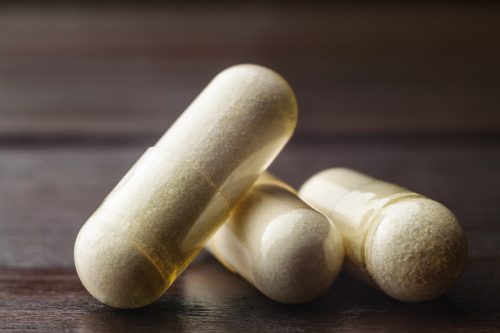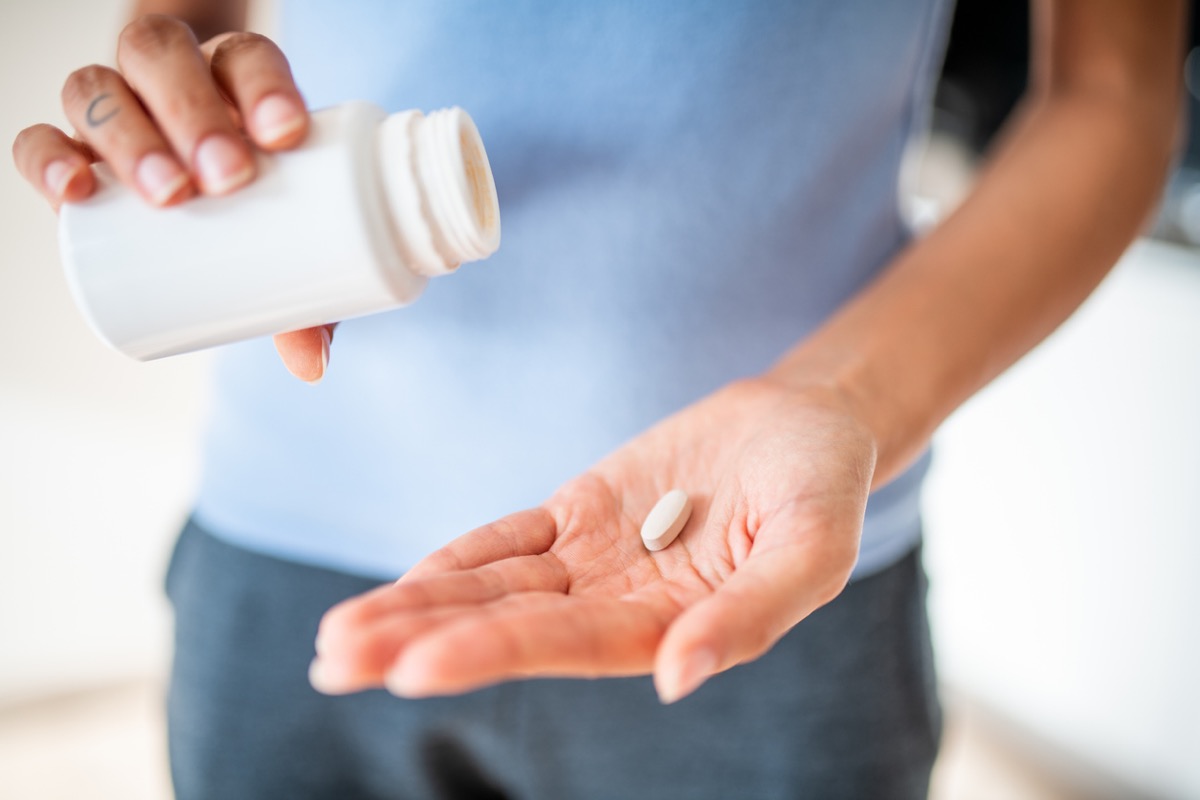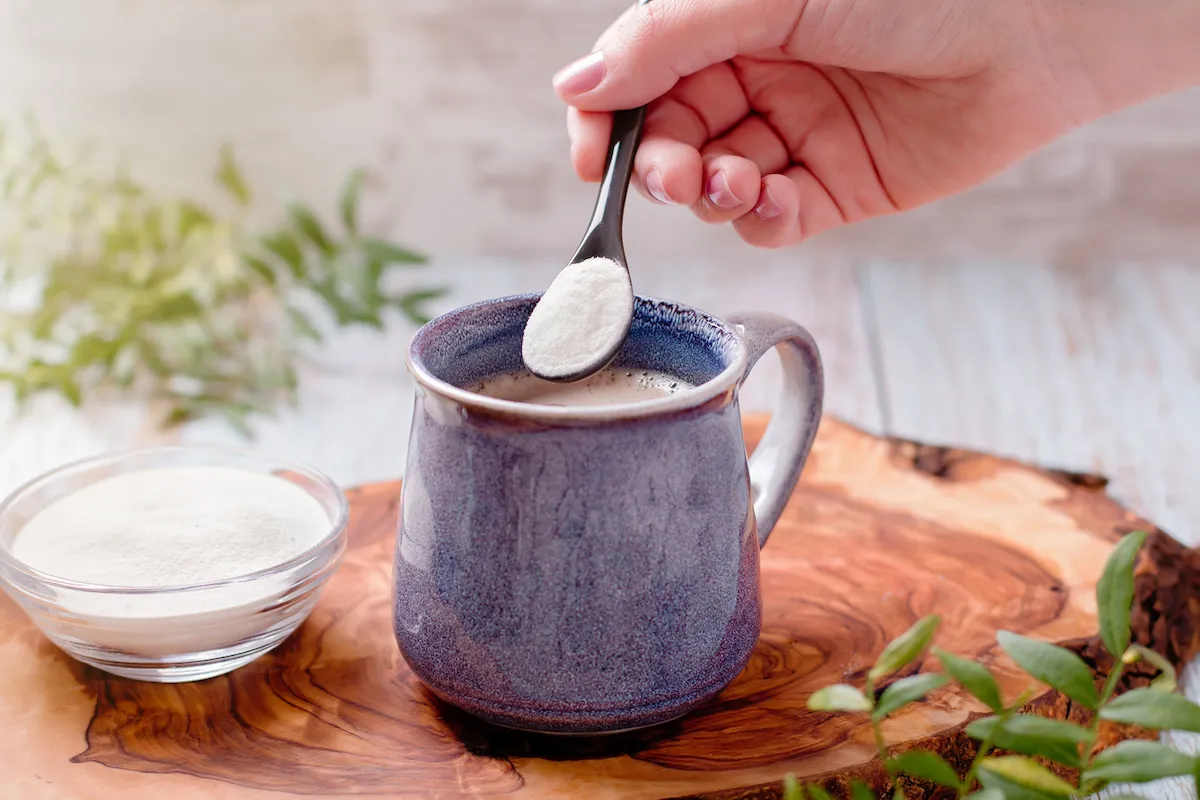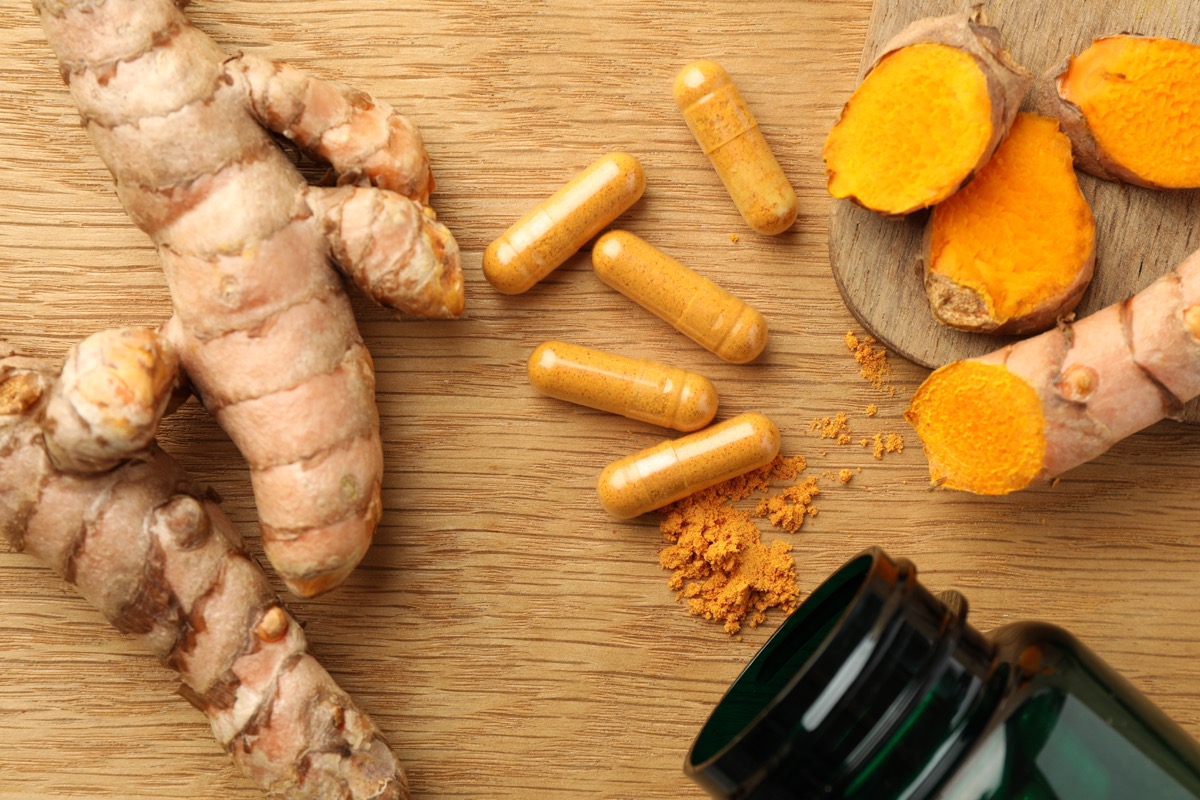6 Best Supplements for Joint Health, According to Doctors

Joint pain can take many forms and can have a range of underlying causes—the most common one being arthritis, which itself has over 100 subtypes. If you’ve ever experienced severe, chronic joint pain, you know just how debilitating it can be. Though there isn’t always a cure, there are several things your doctor might recommend to help alleviate your symptoms, including taking joint supplements.
Oftentimes, the best approach is one that utilizes several of these pain-reducing measures at once. For instance, low-impact exercise, such as walking, cycling, or swimming, is usually a frontline defense against worsening joint pain. Gentle stretching is also highly recommended, as this can help loosen up your joints and increase flexibility.
Additionally, your doctor might recommend weight loss, taking certain medications such as non-steroidal anti-inflammatory drugs (NSAIDs), topical treatments, or, in severe cases, surgery. Finally, the Cleveland Clinic points out that your doctor may also recommend taking certain dietary supplements to help ease your joint pain.
Raj Dasgupta, MD, a medical reviewer for NCOA and an ABIM Quadruple board-certified physician specializing in internal medicine, pulmonology, critical care, and sleep medicine, cautions that supplements will not act as a silver bullet solution to your joint pain.
“There are several therapies for osteoarthritis of unclear or unproven benefit that many clinicians do not routinely use due to lack of sufficient data,” he tells Best Life. “However, some may be reasonable to try as adjunctive measures for patients who do not respond to usual therapy.”
Ahead, doctors share the six joint supplements most likely to yield results.
RELATED: 6 Supplements You Should Never Take If You’re Over 60, Doctors Say.
1
Glucosamine

People who are looking to improve their joint health may find that glucosamine supplements offer some benefits.
“Glucosamine is a natural compound found in cartilage, the tough tissue that cushions joints,” explains Brittany Ferri, PhD, OTR/L, an occupational therapist with NCOA. “It helps to maintain the health of cartilage and may reduce joint pain and improve joint function.”
“Often used to treat symptoms of bone and joint disorders like osteoarthritis, glucosamine is available in several forms, including glucosamine sulfate, glucosamine hydrochloride, and N-acetylglucosamine,” she says.
2
Chondroitin

Taken in conjunction with glucosamine, chondroitin—a component of human connective tissues found in cartilage and bone—may also help boost joint health.
“It helps retain water in the cartilage, which is crucial for its elasticity and shock-absorbing properties,” explains Ferri. “Regular supplementation can reduce joint pain, increase joint mobility, and slow down the progression of osteoarthritis by reducing cartilage breakdown.”
Chris Mohr, PhD, RD, a fitness and nutrition advisor at Fortune Recommends Health, agrees that chondroitin “works well with glucosamine and theoretically is helpful for maintaining healthy cartilage” but notes that the effects may be modest.
One 2023 meta-analysis of eight studies, including nearly 4,000 participants, concluded that taking a combination of glucosamine and chondroitin is “effective and superior to other treatments in knee osteoarthritis to a certain extent.”
“It is worthwhile to popularize and apply the combination in KOA treatment considering the point of effect, tolerability and economic costs,” the study authors wrote.
RELATED: 4 Best Anti-Inflammatory Supplements, Doctors Say.
3
Omega-3 fatty acids

Omega-3 fatty acids play an important role in your health: They enhance cell function, promote heart health, reduce your risk of Alzheimer’s disease and dementia, and support a healthy endocrine system, to name a few benefits. Additionally, Omega-3s can help reduce joint inflammation.
“Omega-3 fatty acids, found in fish oil and flaxseed oil, have anti-inflammatory effects that reduce joint pain and stiffness, particularly in people with rheumatoid arthritis,” says Dasgupta. “Studies of people taking fish oil supplements or eating more fatty fish have found that they have less morning stiffness, joint stiffness and pain, and less need for medication.”
Dasgupta notes that supplements, including omega-3 fatty acids, should only be taken with the guidance of a healthcare professional, such as a doctor or registered dietitian: “They can help you find the right dosage and avoid negative interactions with certain drugs you might be taking, including blood thinners.”
4
Collagen

Collagen makes up about 30 percent of the total protein found in your connective tissues, including cartilage, tendons, and ligaments. However, your body produces less collagen as you age.
The Cleveland Clinic notes that maintaining “a well-balanced diet gives your body the raw ingredients it needs to help it make collagen naturally”—without additional supplementation. However, some doctors say there’s no harm in giving your body an added collagen boost.
“Supplementing with collagen might support joint health by providing the necessary building blocks for cartilage repair and regeneration,” says Dasgupta, adding that collagen may also help reduce joint pain, particularly in those with degenerative joint diseases.
However, he says that, once again, more research is needed to confirm its benefits: “Unfortunately, the research quality varies with often conflicting results.”
RELATED: 5 Supplements That Can Damage Your Kidneys, Doctors Say.
5
Curcumin (Turmeric)

Turmeric and turmeric supplements are rich in phytonutrients that may help reduce the risk of a range of chronic illnesses, including joint problems.
“Curcumin, the active ingredient in turmeric, is known for its anti-inflammatory and antioxidant properties,” explains Mohr. “It works by blocking inflammatory pathways, which reduces joint inflammation. This can be particularly beneficial for those with rheumatoid arthritis and osteoarthritis, potentially helping to alleviate pain and improve joint movement.”
Dasgupta says that preliminary research does indeed suggest that curcumin supplements might be effective for alleviating symptoms of both rheumatoid arthritis and osteoarthritis. However, he adds that more research is needed before curcumin or turmeric can be broadly recommended for joint health.
“Turmeric is becoming a common spice in many home pantries, especially since people are hearing of its many purported health effects, including reducing inflammation. However, the studies with turmeric are small, and limited. More extensive and longer-term studies in osteoarthritis and other types of joint disease, as well as testing of its safety, are needed before recommending it,” he says.
6
Vitamin D

Vitamin D deficiencies are among the most common nutritional deficiencies in the U.S. If you’re experiencing joint pain and your doctor has confirmed that your vitamin D levels are low, it’s a good idea to ask whether you might benefit from taking a vitamin D supplement.
“While research doesn’t support those with healthy levels of vitamin D reducing joint pain [with supplementation], those with insufficiency—which can be determined by lab work with your own health care practitioner—may reduce joint pain by correcting their own vitamin D levels,” says Mohr.
Best Life offers the most up-to-date information from top experts, new research, and health agencies, but our content is not meant to be a substitute for professional guidance. When it comes to the medication you’re taking or any other health questions you have, always consult your healthcare provider directly.